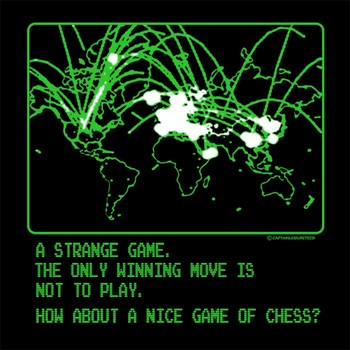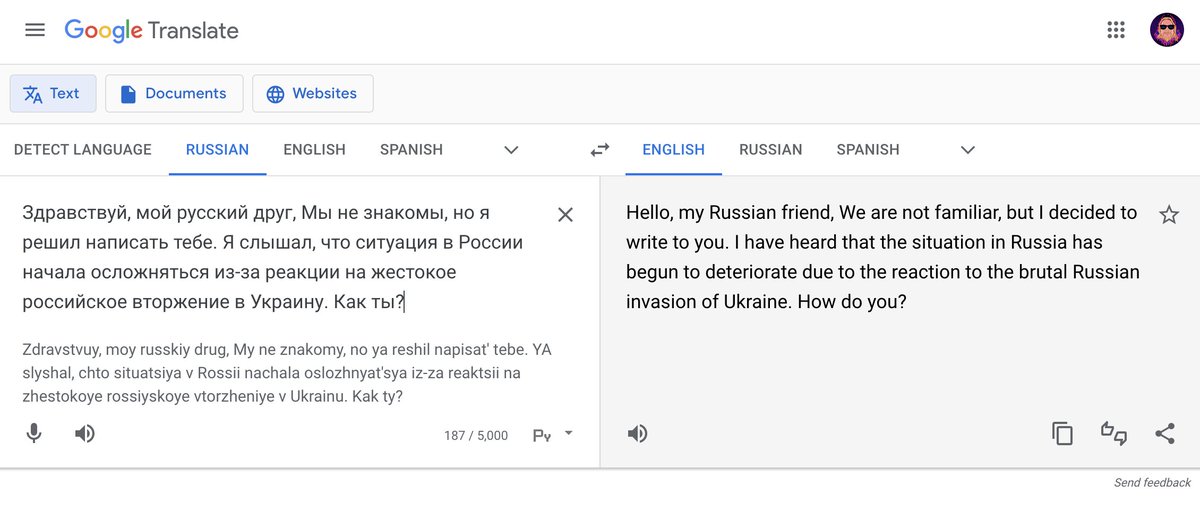
🧵 1/20 open-sourcing my thinking on game theory, game design and geopolitics.
There's been talk about the geopolitical "game" being played. Most don't consider iterative play, irrationality, risk of ruin and asymmetric info.
Read on, & LMK how to improve my thinking.
There's been talk about the geopolitical "game" being played. Most don't consider iterative play, irrationality, risk of ruin and asymmetric info.
Read on, & LMK how to improve my thinking.

2/20 The point by @balaji is neither side may be playing the same game.
But the problem we have here is really one of information asymmetry.
Not simply playing different games... but not even knowing the game being played.
But the problem we have here is really one of information asymmetry.
Not simply playing different games... but not even knowing the game being played.
https://twitter.com/balajis/status/1504375387580604422
3/20 Donald Rumsfeld famously spoke about "known knowns," "known unknowns" and "unknown unknowns."
But this actually left out a whole set of problems: things we *believe* we know, but are actually wrong about.
But this actually left out a whole set of problems: things we *believe* we know, but are actually wrong about.
4/20 So what if the problem isn't playing chess against Russian Roulette...
But being sure that we know what game the opponent is playing?
What if our opponent is playing chess as well but wants us to think they're playing Russian Roulette? Or worse?
But being sure that we know what game the opponent is playing?
What if our opponent is playing chess as well but wants us to think they're playing Russian Roulette? Or worse?
5/20 Ruin = a state from which there's no turning back, no recovery.
Once "Global Thermonuclear War" becomes the game, all players have lost.
Russian Roulette isn't a good description of the game because only one player dies. We need a state where all players die. Mutual ruin.
Once "Global Thermonuclear War" becomes the game, all players have lost.
Russian Roulette isn't a good description of the game because only one player dies. We need a state where all players die. Mutual ruin.

6/20 Let's consider a single game of Prisoner's Dilemma. Your choice: cooperate with the other prisoner and get a 1-year sentence; defect and get no sentence (other prisoner gets 3 years). If both defect, each get 2 years.
Best choice? Always defect:
investopedia.com/articles/inves…
Best choice? Always defect:
investopedia.com/articles/inves…
7/20 You *could* make the risks of non-cooperation worse. For example, both players are executed if both defect.
Perhaps that's a better model for a nukes.
Each would prefer cooperation in that scenario. But if the reward is enough, some might still sometimes risk defection.
Perhaps that's a better model for a nukes.
Each would prefer cooperation in that scenario. But if the reward is enough, some might still sometimes risk defection.
8/20 If you know you have an opponent who will never risk mutual ruin, then you have an optimal strategy:
ALWAYS defect (threaten nukes) rather than cooperate.
This is where it is more helpful to consider Prisoner's Dilemma not as a single game, but a repeated game.
ALWAYS defect (threaten nukes) rather than cooperate.
This is where it is more helpful to consider Prisoner's Dilemma not as a single game, but a repeated game.
9/20 When the game is iterated, each iteration reveals a bit about your opponent, and how you ought to respond in the future.
Tit-for-tat (retaliate only when opponent defects) works better than always cooperating or always defecting: psychologytoday.com/us/blog/evolut…
Tit-for-tat (retaliate only when opponent defects) works better than always cooperating or always defecting: psychologytoday.com/us/blog/evolut…
10/20 Problem: no "optimal strategy" in repeated Prisoner's Dilemma.
Empathy/learning > strategy:
"The cognitive aspects of innovation and exploration are therefore more important in this problem than the cognitive aspects of implementing strategies."
frontiersin.org/articles/10.33…
Empathy/learning > strategy:
"The cognitive aspects of innovation and exploration are therefore more important in this problem than the cognitive aspects of implementing strategies."
frontiersin.org/articles/10.33…
11/20 Also: in this iterated game, mutual defection = game over.
This played out in the Cuban Missile Crisis.
@HardcoreHistory has explored what happened. The players cooperated in the end in a "chess game booby-trapped with nuclear weapons":
dancarlin.com/hardcore-histo…
This played out in the Cuban Missile Crisis.
@HardcoreHistory has explored what happened. The players cooperated in the end in a "chess game booby-trapped with nuclear weapons":
dancarlin.com/hardcore-histo…
12/20 What worked here is Mutually Assured Destruction (MAD).
When both players are rational, nobody will seek a MAD outcome.
But that's a big IF. We don't know that each player is rational... Which is a frequent, flawed assumption in game theory. Read:
fivebooks.com/best-books/ari…
When both players are rational, nobody will seek a MAD outcome.
But that's a big IF. We don't know that each player is rational... Which is a frequent, flawed assumption in game theory. Read:
fivebooks.com/best-books/ari…
13/20 What if both sides are rational, but one convinces the other that they are not?
If one side believes the other to be irrational enough to nuke despite MAD, the only move is to always cooperate (and then be dominated by the opponent at every turn).
If one side believes the other to be irrational enough to nuke despite MAD, the only move is to always cooperate (and then be dominated by the opponent at every turn).
14/20 In an iterated game, each player learns more about the other's strategy at each move.
Each player can adjust accordingly, and strategies can change.
The biggest challenge is one of asymmetric information: WHAT game is the opponent actually playing?
Each player can adjust accordingly, and strategies can change.
The biggest challenge is one of asymmetric information: WHAT game is the opponent actually playing?
15/20 Since the risk of an opponent continuously using a "defect" (threaten nukes) is extremely dangerous, that strategy ought to be punished.
An economic nuke is may be a good response to discourage future iterations involving threat of real nukes.
An economic nuke is may be a good response to discourage future iterations involving threat of real nukes.
https://twitter.com/balajis/status/1497919817109573634
16/20 Important question: is ensemble probability of permitting random nuke threats an increase to actual risk of of MAD compared to the occasional risk of calling threats.
For background on ensemble probabilities & personal vs. global ruin, @nntaleb: medium.com/incerto/the-lo…
For background on ensemble probabilities & personal vs. global ruin, @nntaleb: medium.com/incerto/the-lo…

17/20 Maybe Poker is a better description of the game we're playing; it is a game about having incomplete info--while having many rounds to learn about your opponents' strategies and tells.
In poker, you'd call an aggressive player a "maniac."
poker-king.com/dictionary/man…
In poker, you'd call an aggressive player a "maniac."
poker-king.com/dictionary/man…
18/20 Is an opponent who frequently threatens nukes a "maniac," an inexperienced player, or simply playing a dominant strategy?
Is it all just a bluff?
One can't permit bluffing to be a dominant strategy.
That's what makes this "game" so hard. We don't know.
Is it all just a bluff?
One can't permit bluffing to be a dominant strategy.
That's what makes this "game" so hard. We don't know.
19/20 In Texas Holdem' Poker, most games are over before you "go to the river" (reveal the last card along with your hands).
upswingpoker.com/river-poker-st…
upswingpoker.com/river-poker-st…
20/20 Texas Holdem variant I'll call Doomsday Poker:
Add two jokers to the deck.
Jokers are wild.
EXCEPT: if both players have a hole joker: game over; lose all stacks you came with.
Maybe that's the game?
Iteration is helpful; so is caution. It's going to be a hard game.
Add two jokers to the deck.
Jokers are wild.
EXCEPT: if both players have a hole joker: game over; lose all stacks you came with.
Maybe that's the game?
Iteration is helpful; so is caution. It's going to be a hard game.

• • •
Missing some Tweet in this thread? You can try to
force a refresh





